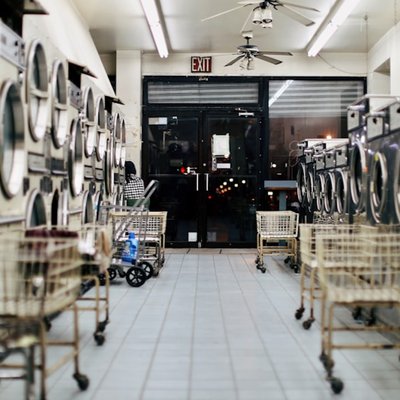- Dictionary
some
An adjective is a word that describes a noun (e.g., grand, petit).
a. du (masculine) (singular)
A word or phrase that is masculine (e.g., le livre).
A word or phrase that is singular (e.g., le chat).
I'll have some free time this weekend to help you.J’aurai du temps libre ce week-end pour t'aider.
b. de la (feminine) (singular)
A word or phrase that is feminine (e.g., la pomme).
A word or phrase that is singular (e.g., le chat).
I need to remember to have some patience when I wait in line.Je dois me rappeler d’avoir de la patience quand je fais la queue.
c. de l' (singular) (before a vowel or a silent h)
A word or phrase that is singular (e.g., le chat).
Could I have some water, please?Pourrais-je avoir de l’eau, s’il vous plaît ?
e. un peu de (singular)
A word or phrase that is singular (e.g., le chat).
If you're thirsty, there's still some water left in the bottle.Si tu as soif, il reste encore un peu d'eau dans la bouteille.
a. beaucoup de
There is still some distance to go before we make it to our destination.Il nous reste encore beaucoup de chemin à parcourir avant d’arriver à destination.
b. pas mal de (colloquial)
A word or phrase that is commonly used in conversational speech (e.g., skinny, grandma).
Evan doesn't work for that company anymore. He's been retired for some years.Evan ne travaille plus pour cette entreprise. Il est à la retraite depuis pas mal d'années.
a. un (masculine) (singular)
A word or phrase that is masculine (e.g., le livre).
A word or phrase that is singular (e.g., le chat).
Some book on the shelf must have caught Emily's attention.Un livre sur l’étagère a dû attirer l’attention d’Emily.
b. une (feminine) (singular)
A word or phrase that is feminine (e.g., la pomme).
A word or phrase that is singular (e.g., le chat).
Some person at the party must have caught Emily's attention.Une personne à la fête a dû attirer l’attention d’Emily.
c. certains (masculine or mixed gender) (plural)
A word or phrase used to refer to a group including masculine words or both masculine and feminine words (e.g., beaux).
A word or phrase that is plural (e.g., les livres).
Some relationship issues keep resurfacing.Certains problèmes relationnels ne cessent de refaire surface.
d. certaines (feminine) (plural)
A word or phrase that is feminine (e.g., la pomme).
A word or phrase that is plural (e.g., les livres).
There are some things Amy doesn't like to talk about.Il y a certaines choses dont Amy n’aime pas parler.
A pronoun is a word that stands in for a noun (e.g., elle, lui).
a. une partie (singular)
A word or phrase that is singular (e.g., le chat).
When I spilled the water, some got on the floor.Quand j’ai renversé l’eau, une partie a coulé sur le sol.
b. en (direct object)
Our garden is producing a lot of tomatoes this year. Would you like some?Notre jardin produit beaucoup de tomates cette année. Tu en veux ?
c. certains (masculine or mixed gender) (plural)
A word or phrase used to refer to a group including masculine words or both masculine and feminine words (e.g., beaux).
A word or phrase that is plural (e.g., les livres).
Not all our projects are public. Some are confidential.Tous nos projets ne sont pas publics. Certains sont confidentiels.
d. certaines (feminine) (plural)
A word or phrase that is feminine (e.g., la pomme).
A word or phrase that is plural (e.g., les livres).
Some of the flowers in the garden died from the drought.Certaines des fleurs du jardin sont mortes à cause de la sécheresse.
e. quelques-uns (masculine or mixed gender) (plural)
A word or phrase used to refer to a group including masculine words or both masculine and feminine words (e.g., beaux).
A word or phrase that is plural (e.g., les livres).
Many of my friends are bilingual. Some are even trilingual!Beaucoup de mes amis sont bilingues. Quelques-uns sont même trilingues !
f. quelques-unes (feminine) (plural)
A word or phrase that is feminine (e.g., la pomme).
A word or phrase that is plural (e.g., les livres).
Some of the lightbulbs on the Christmas tree are broken.Quelques-unes des ampoules du sapin de Noël sont cassées.
An adverb is a word that describes a verb, an adjective, or another adverb (e.g., très, gentiment).
5. (a little)
a. un peu
I need to rest some before I get back to work.J’ai besoin de me reposer un peu avant de retourner au travail.
Examples
Random Word
Roll the dice and learn a new word now!




















